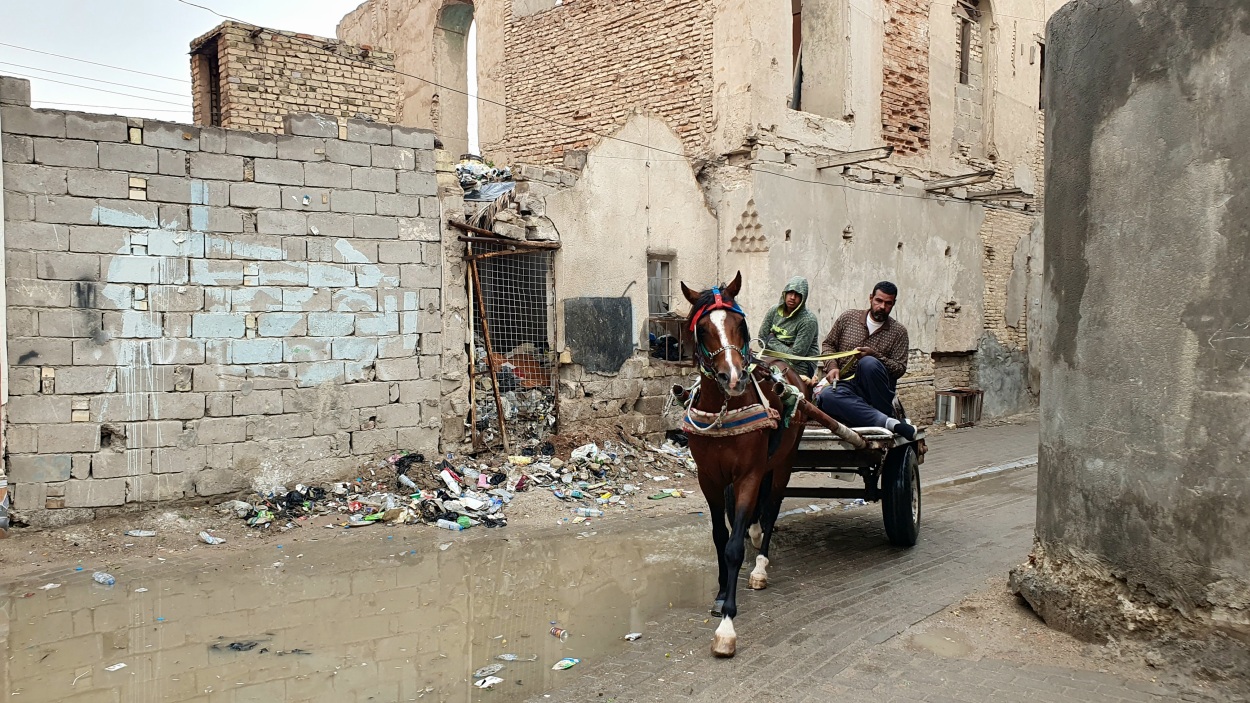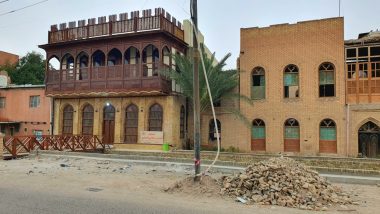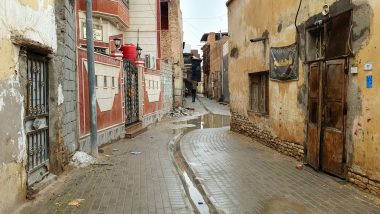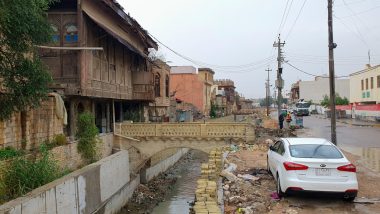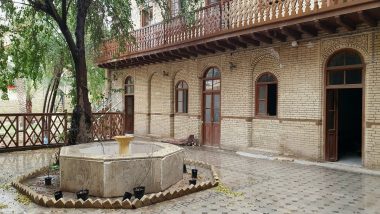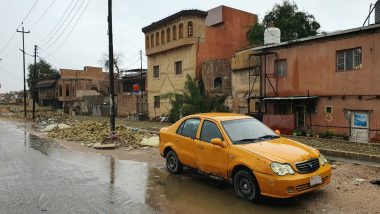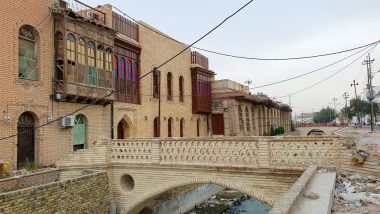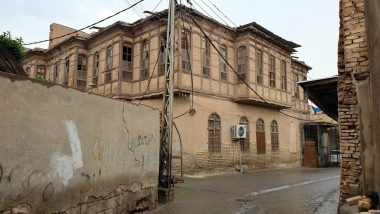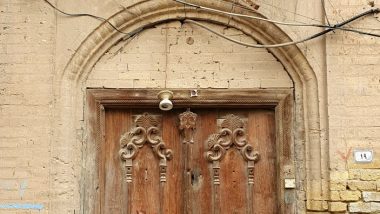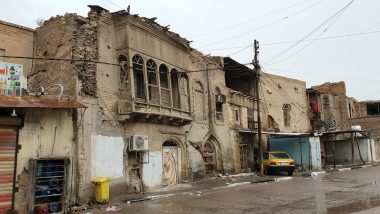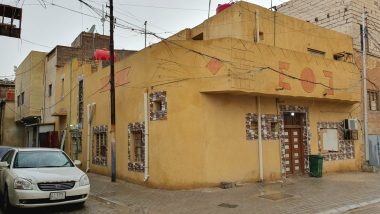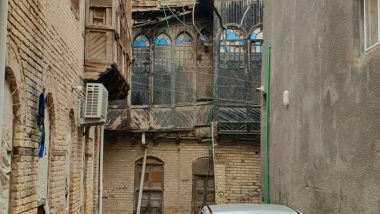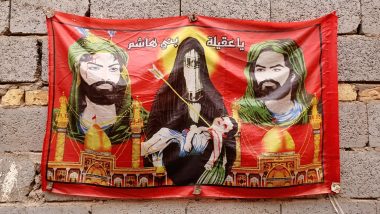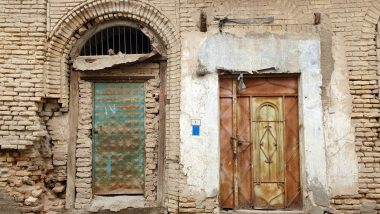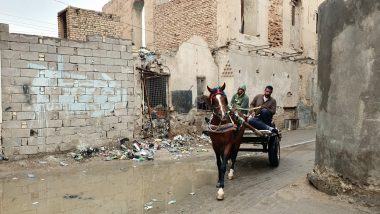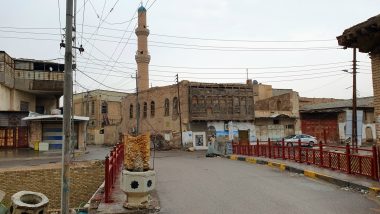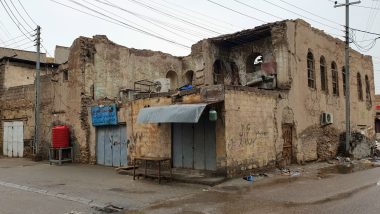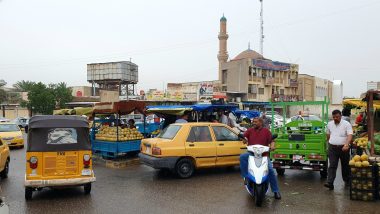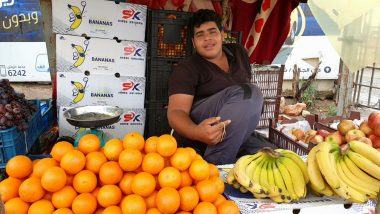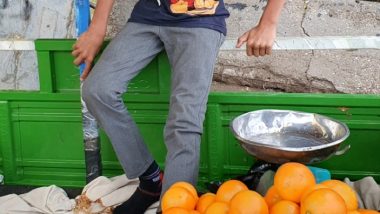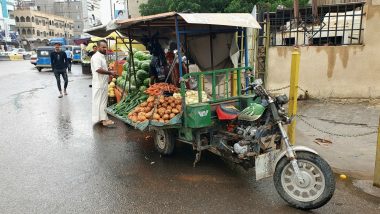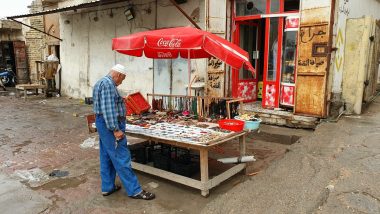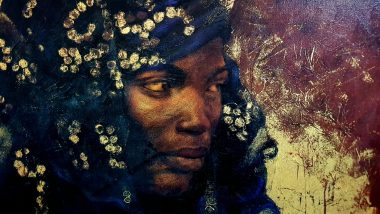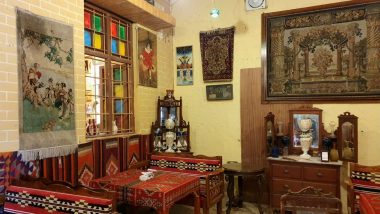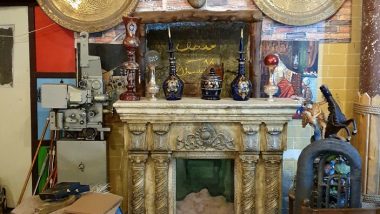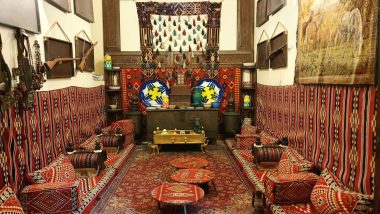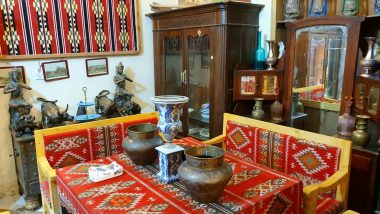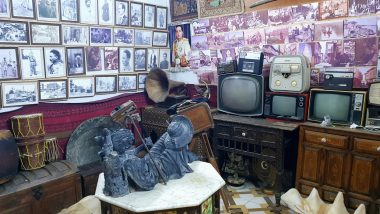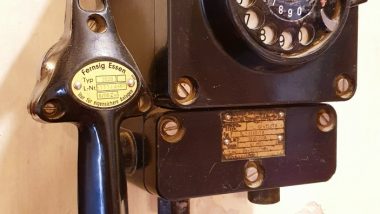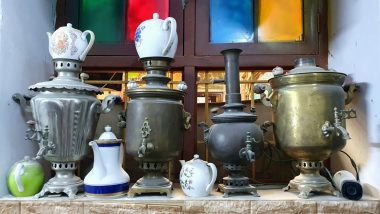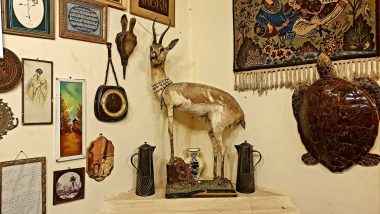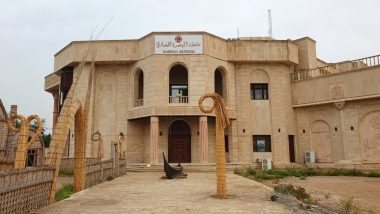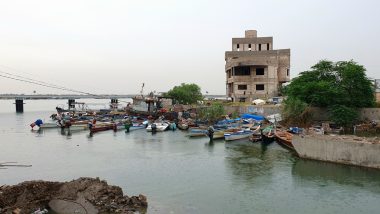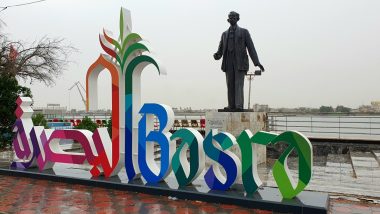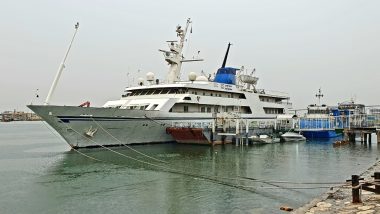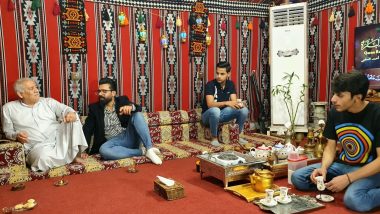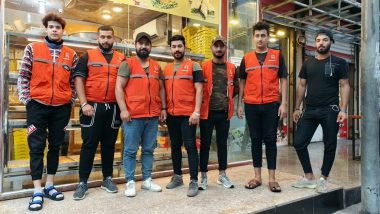One of our last stops in Iraq, because the immigration refused to extend our 30 days visa, was the principal port of Iraq – Basra. The city is situated on the western bank of the Shaṭṭ Al-ʿArab (the waterway formed by the union of the Tigris and Euphrates rivers) at its exit from Lake Al-Ḥammār, 110 km by water above Al-Fāw on the Persian Gulf. The adjacent terrain is low-lying and deeply intersected by creeks and small watercourses.
Basra was founded as a military encampment by the second caliph, ʿUmar I, in 638. The first architecturally significant mosque in Islam was constructed there in 665. After that, however, Basra was a focus of the political strife between the competing religious factions in Islam. Moreover, a volatile social situation intensified this political friction. Whereas the Arab army constituted an aristocracy in Basra, the local and various migrant peoples who had settled there (Indians, Persians, Africans, Malays) were merely mawālī or clients attached to Arab tribes. Basran history from the late 7th century is thus unrest and insurrection.
Basra had been, however, a brilliant cultural center in its own right throughout the 8th and into the 9th century. It was the home of noted Arab grammarians, poets, prose writers, and literary and religious scholars. Islamic mysticism was first introduced in Basra by al-Ḥasan al-Baṣrī, and the theological school of the Muʿtazilah developed there. Basra is perhaps best known to Westerners as the city from which Sinbad set out in The One Thousand and One Nights.
The growth of Iraq’s petroleum industry in the postwar decades turned Basra into a major petroleum refining and exporting center. Basra’s refinery was much damaged by the Iran-Iraq War in 1987 and suffered extensive damage in 1991 during the Persian Gulf War and subsequent fighting between rebel factions and government troops. Other damages made Iraq War, which commenced in March 2003. The city’s garrison was deemed too significant a threat to the U.S.-led coalition’s supply lines. Shortly after the onset of the war, British troops engaged in a systematic siege operation against the Iraqi army and paramilitary forces in and around the city. After two weeks of fighting, Basra fell. British armed forces occupied and governed the region until December 2007, when security responsibilities were returned to the Iraqi government.
During our city tour, we got arrested by the police at the bazaar. They jumped on us and brutally moved us to the police car and brought us to the police station, to the big surprise of the officers at the police station. We spent three hours sitting and waiting there, and after that, they kicked us out without any explanation. We do not know why it happened, and it finally ruined the image of Iraq in our eyes just at the end of our trip. It proved what many people say: Iraq is not ready for tourism yet.
On the other hand, we also met many friendly people who helped to find secured parking (🅿️ – 5000 IQD / day), warmly welcomed us in their homes, took care of us during the city tour, and handled the situation at the police station.
Parking location – Basra: 30.486310N 47.799301E (🚻, 💦 – nearby service)


